Spic-and-span: How the mechanics keep Tour team bikes clean
Get a hose down with the professional mechanics in France
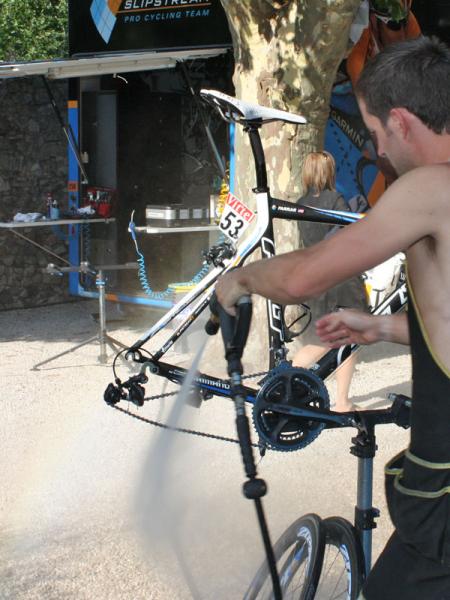
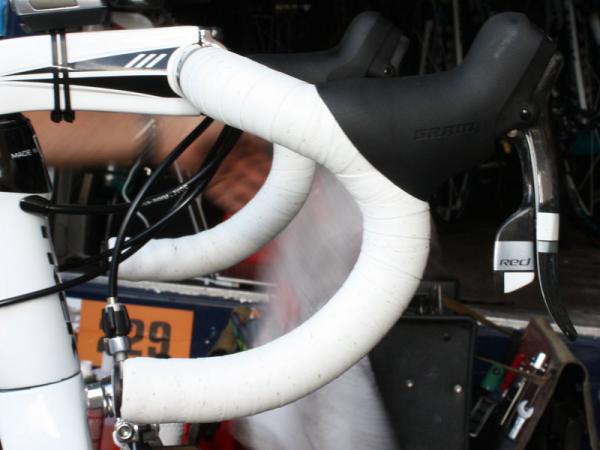
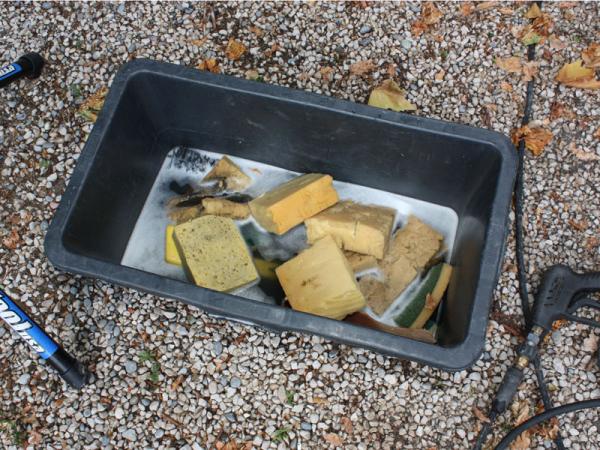
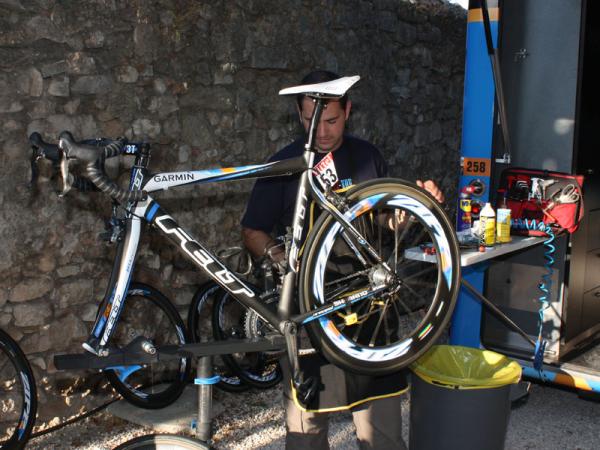
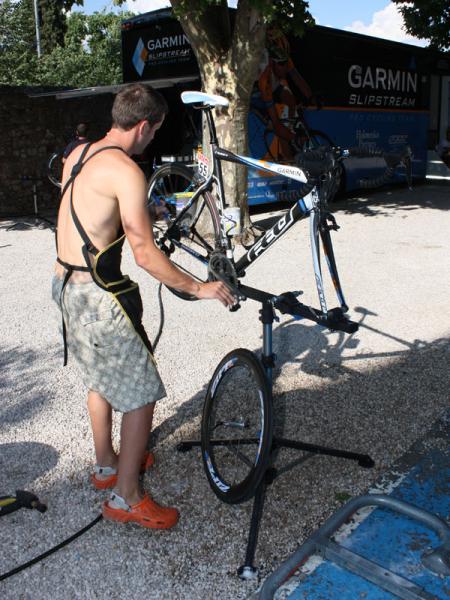
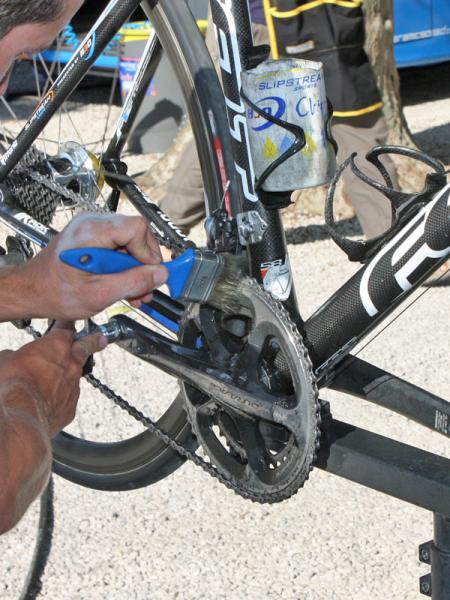
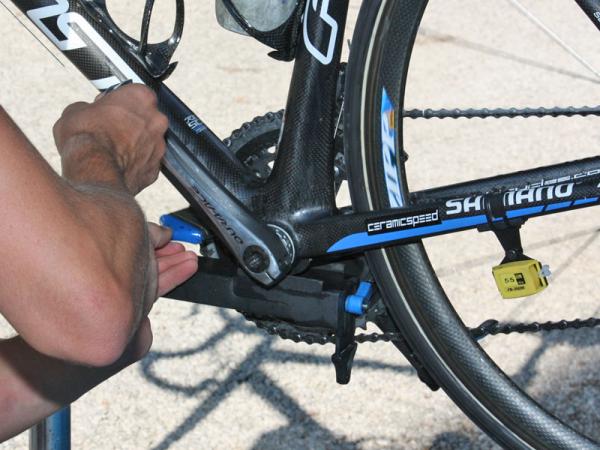
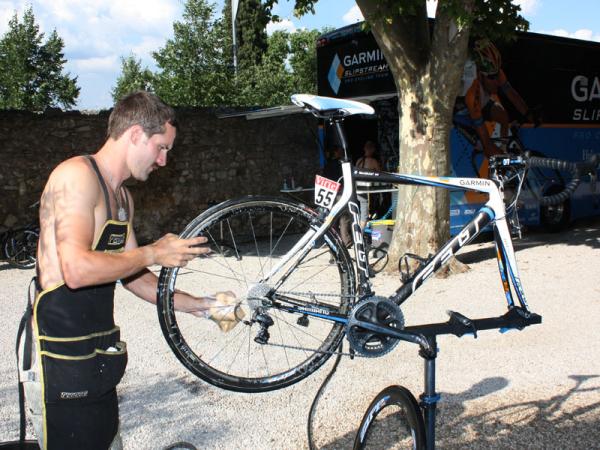
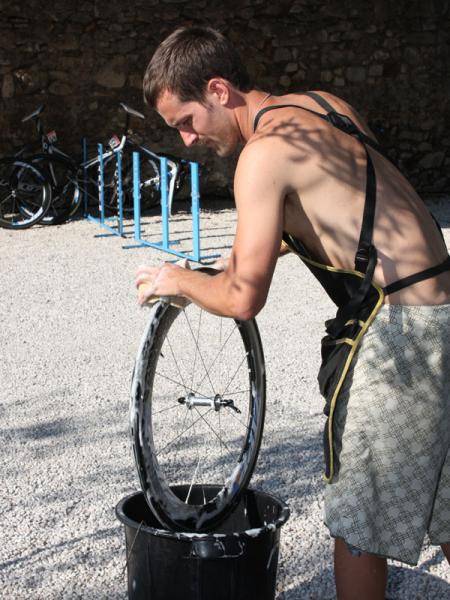
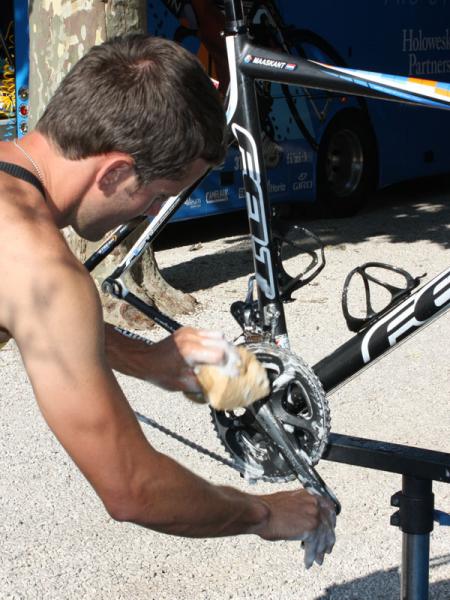
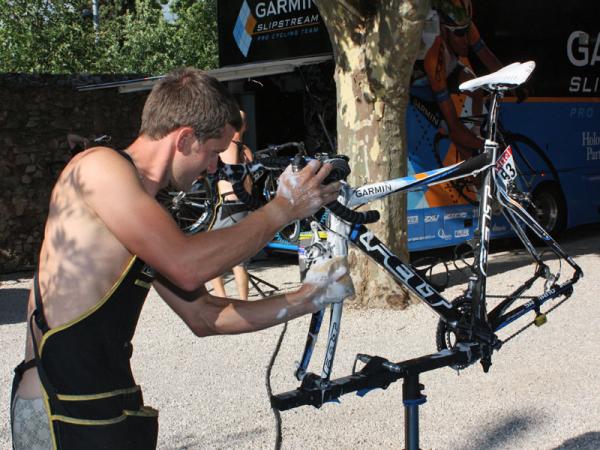
This year's Tour de France includes twenty teams and nearly 200 riders and each and every one of them starts each stage with a sparkling clean machine ready to take on another day. When you also consider that each rider has his own time trial bike as well, additional spares – and the fact that every team vehicle is also washed each day – it goes without saying that the team mechanics are quite accustomed to dishpan hands.
Interestingly, though the army of mechanics hail from all corners of the world, come from a wide variety of backgrounds and spans a broad range of years in the sport, the procedure each of them uses to clean all of those bikes is remarkably consistent.
After placing the bike in a repair stand – invariably one that supports the bike by the fork tips and bottom bracket shell – every drivetrain gets a thorough degreasing. Typically, mechanics will place a cut-off water bottle into the seat tube-mounted cage, fill it with solvent (ideally something biodegradable but unfortunately not always so) and apply it with a small brush.

After a very short soak, the chain, derailleurs, crankset and cassette are simply blasted with a pressure washer and it's deemed good to go. During the Tour, each bike typically has only seen one ride since its last cleaning and the solvents used are generally quite aggressive so little if any real scrubbing is required to remove any grime and gunk from the transmission.
Next, the rear wheel comes off (some teams leave them on for this step) and both wheels and tires are thoroughly scrubbed down using a sponge saturated with soapy water (usually some sort of dish detergent), rinsed off, then set aside to dry. The rest of the bike then gets a similar treatment with no areas left untouched – even the brake levers, saddles and brake calipers get a comprehensive cleaning. If necessary, especially needy areas such as white saddles and bar tape get a little extra TLC to restore them to their original gleaming hue.
Total time from start to finish is an ultra-efficient sub-five minutes at most.
Once each bike is cleaned, it's then moved over to the next station where another mechanic will inspect, tune, and replace items as needed. In essence, each team pit area is its own mini-assembly line and barring anything out of the ordinary the entire fleet is usually turned around in a matter of three hours or so.
Get The Leadout Newsletter
The latest race content, interviews, features, reviews and expert buying guides, direct to your inbox!

One thing to note: team bikes see far more abuse than the norm and need to be clean and pristine such that they can be properly inspected for damage. In addition, it's also important that they always be presentable to the public in order to cast a favorable light on the team's equipment sponsors. As such, the team mechanics do use pressure washers throughout the process and though they don't aim the powerful spray directly at any bearings, they're also not exactly shy in how it's used, either. More often than not, team bikes only need to last a single season and mechanics readily admit that long-term durability isn't always their highest priority.
With that being said, most consumers shouldn't take this as license to do the same with their own bikes lest they commit to a similarly stringent maintenance schedule as the pros. According to Garmin team mechanic Tom Hopper, every team bike gets a complete set of new ceramic bearings prior to any grand tour, plus new cables, housing and chains on each rest day – or, in other words, after about every seven Tour de France stages.
Now ask yourself this question: when was the last time your bike had a tune-up between washings? Careful with that hose…
